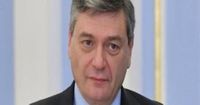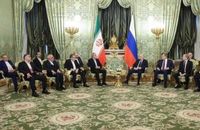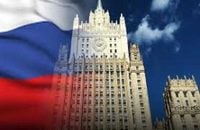In a significant development in international relations, Russian Deputy Foreign Minister Andrei Rudenko addressed the comprehensive strategic partnership agreement between Russia and Iran during a session in the Duma on April 8, 2025. He emphasized that the agreement does not entail military assistance between the two nations, countering widespread speculation about a potential military alliance.
Rudenko clarified that the agreement, which extends for 20 years with automatic five-year renewals, explicitly states that neither country will provide military support to an aggressor if either Russia or Iran is attacked. "Russia confirms that the agreement does not mean forming a military alliance with Iran, and it does not detract from reducing military assistance, but rather it depends on not providing military assistance to the aggressor in the event that Russia or Iran is exposed to it," Rudenko stated.
Moreover, the deputy minister highlighted that the agreement includes provisions for resolving disputes according to the principles outlined in the UN Charter and other international standards. This aspect of the agreement aims to facilitate cooperation in addressing any differences that may arise, ensuring a diplomatic approach to conflict resolution.
Rudenko also pointed out a specific article dedicated to confronting unilateral coercive measures, which both nations deem illegal and unfriendly. He noted, "The parties clearly emphasize that such actions are unlawful and unfriendliness, and they commit to coordinating efforts to eliminate these malign practices in international relations." This reflects a growing sentiment among various nations against unilateral sanctions that often disrupt international trade and diplomatic relations.
The strategic partnership agreement was signed on January 17, 2025, by Russian President Vladimir Putin and Iranian President Masoud Bzkshian in Moscow. This agreement replaces an earlier treaty established in 2001, focusing on enhancing bilateral cooperation in various domains, including economic and social issues.
Russian Foreign Minister Sergei Lavrov reiterated that the new treaty is not aimed at any third country. He described it as constructive, asserting that it seeks to bolster the capabilities of both Russia and Iran globally. Lavrov stated, "The agreement aims to enhance the capabilities of Russia and Iran in various areas of the world, including developing the economy in a better way, and resolving social issues in a consensual manner."
As tensions between the United States and Iran continue, Rudenko expressed Moscow's readiness to assist in facilitating dialogue between the two nations. He remarked, "The American-Iranian dialogues are taking place in the security field smoothly, and we hope that our efforts will not be harmful, but if they need it, we will provide (to the parties) all kinds of assistance." This indicates Russia's strategic positioning as a mediator in ongoing discussions regarding Iran's nuclear program and regional stability.
The Kremlin's spokesperson, Dmitry Peskov, also welcomed the ongoing talks between the U.S. and Iran, particularly those taking place in Oman. He emphasized the importance of dialogue in alleviating tensions surrounding Iran's nuclear ambitions, which have been a point of contention in international relations for years.
In summary, the comprehensive strategic partnership agreement between Russia and Iran marks a pivotal moment in their bilateral relations, emphasizing non-aggression and diplomatic resolution of conflicts. While it does not include provisions for military cooperation, it aims to strengthen economic and social ties, highlighting both countries' commitment to working together in a challenging global landscape.







